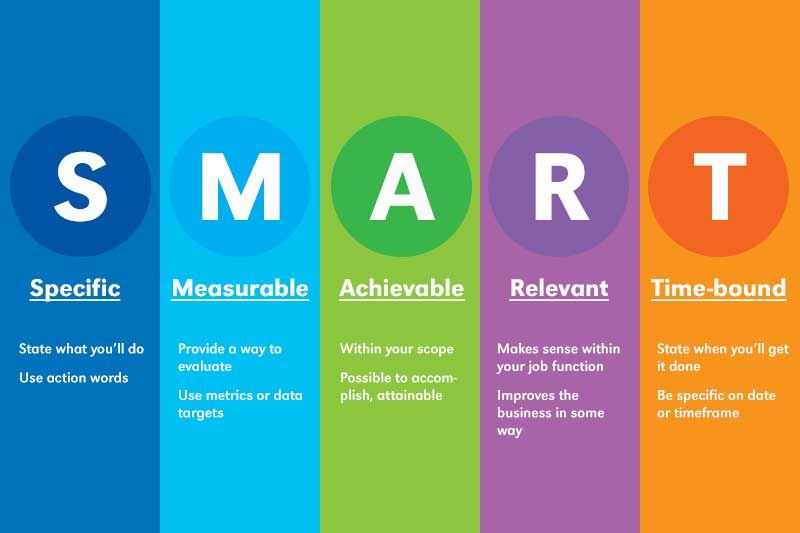New Paragraph
Setting Professional Goals and Sticking to Them
November 15, 2019
Setting Professional Goals. It’s easy to think about professional goals in an abstract sense, especially when a current career situation leaves us feeling stagnant, stuck, or undervalued at work. But what happens when it’s time to meet and exceed these goals? Without the right approach and mindset, your efforts could fall flat.
Goal-setting strategies and the methods needed to get there are about as unique as the people who use them. That said, there are a few universal fundamentals that everyone can leverage to start taking their career to the next level.
What Makes a “Good” Goal?
Before getting excited and putting pen to paper to make a list of goals, pause to think about whether the goals are achievable, attainable, or even realistic. One approach to creating “good” goals is the SMART method, which is rooted in psychology. With every goal, make sure the following boxes are ticked off:
- Specific
- Measurable
- Achievable
- Results-focused
- Time-limited
While a goal like “find job satisfaction” is okay, an even SMART-er goal would be something along the lines of “learn the skills to advance to a higher-tier role within the next 18 months.” Studies show that those who set specific, streamlined goals and develop plans to achieve them can actually earn more than those who don’t attack goal-setting in this manner.

Which SMART Goals Can Help Improve Professional Growth?
Even with the concept of SMART goals applied, it can still be tough to understand which goals will have the most return on investment. While job titles, industries, and professional trajectory will all factor into the specific goals being set, there is a handful that remains universal.
Learning new skills: New career opportunities might require new skills, and while that’s true for movement within an organization, it’s especially true for those looking to change job roles or industries. Whether it means going back to school for an advanced degree or taking advantage of on-the-job professional development, make this goal very specific, and don’t hesitate to talk to management or upper-level supervisors to help develop a plan.
Build a Personal Brand
Looking for a new job? Looking to move up within the organization? Either way, thought leadership and expert insight will offer serious momentum. Building a personal brand through actions like increased social media presence, a personal website, and even public speaking means potential employers will get a comprehensive picture of their potential new hire. It can also be leveraged to bring to an existing organization when looking for a promotion.
Find a Better Balance
Although organizations are increasingly recognizing the importance of a work-life balance, it’s ultimately something that we (and not our higher-ups) need to tackle on our own. Think about what that balance means; it could be better on-the-job perks, a more flexible working schedule, or even a heartier vacation policy — it could also mean switching jobs to get what you need. Ultimately, being an advocate for better balance makes for a happier, more productive, and more successful employee.
Look For Leadership
“Moving up” in an organization involves more than just crossing your fingers and hoping for a promotion. It often means taking on more responsibilities to get the recognition that highlights your leadership capabilities. Work with your manager to set a firm timeline with milestones along the way to help keep progress on track, and take the time to create an action plan with steps to help get there.

What Can Be Done To Stay on Track?
Once SMART goals are established and the plan to get there has been implemented, it’s important to know how to stay on track for meeting these goals. Start with attainable goals — there’s no reason (or advantage) to spend precious energy on lofty goals that may take much longer to meet. Make sure to be consistent with your efforts and take reasonable steps every day to work towards those goals.
Another excellent way to keep on track is by asking for feedback from those who can help track progress and offer important insight. This can be a mentor, superior, or even a coach who has experience working with SMART goals and the people who set (and achieve) them.
With private coaching, you can receive help with putting together step-by-step strategies and plans of action for setting goals and even exceeding them, with the help of a mentor by your side.
The business coaches who conduct The Alexander Group coaching sessions are both certified and experienced with mentoring — let’s start working on SMART goals.




